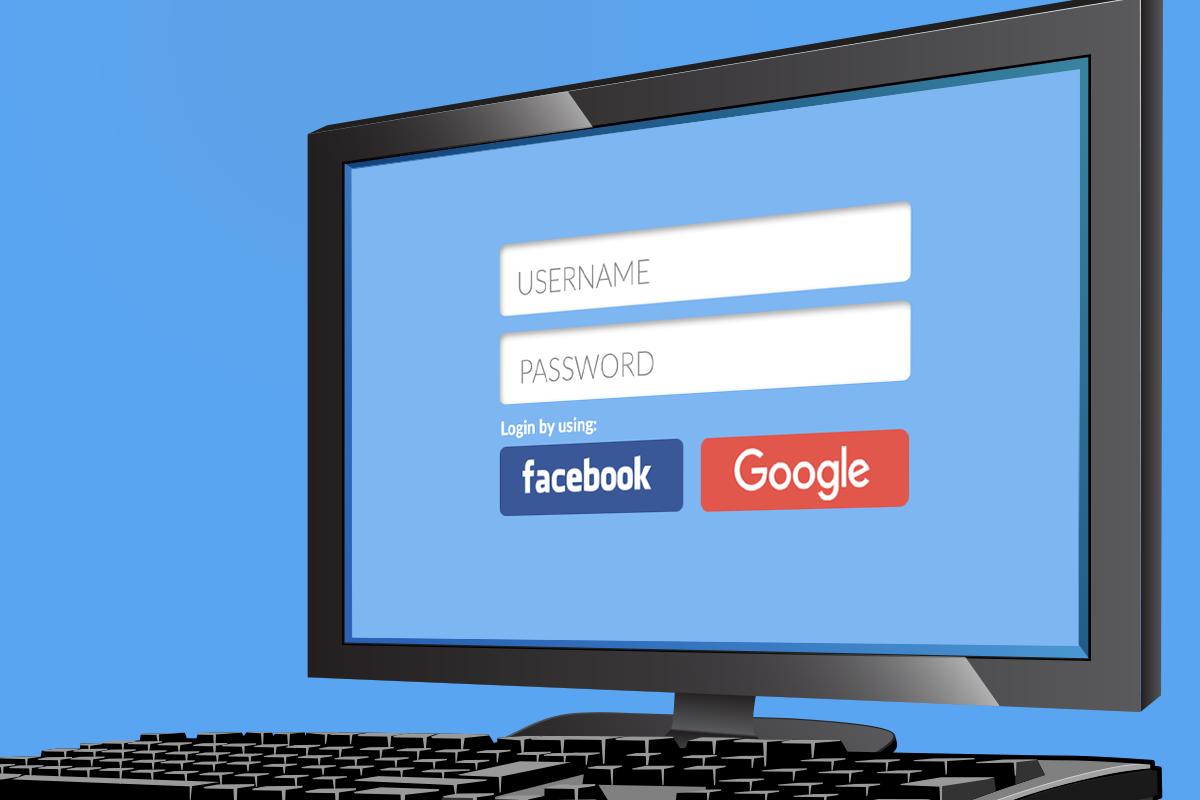Nine out of ten times today when you visit a website you’re asked to sign in. To add convenience, many sites offer the ability to sign in using a Facebook or Google account. Sure, it’s simpler, but this article will share three key reasons why you might want to avoid this easy route.
It’s estimated that we each have an average of 100 passwords. That’s a lot to remember, especially as we need unique logins for every site to lower our risk of cyberattack.
At the same time, every website wants us to set up an account. It helps them get to know their users. This can help them to target marketing and product development efforts. They might also share the information with third parties as another source of income.
Still, the website wants to keep its users coming back, so they allow you to sign in with Google or Facebook accounts to streamline the process. Weigh the value of that added convenience against these three considerations.
#1 You’re giving away more data
By using Google or Facebook to sign in on other websites, you are giving the sites greater access to information about you. Now, they not only know what you do on their sites, but you’re also allowing them to build out their picture of you with data insights from the shared sites.
Google and Facebook have powerful tools to dig deeper into your online activity, and other websites can also extract data from your Facebook and Google accounts. If you don’t read the privacy policies, you may not know what sensitive data the platforms share.
#2 You could lose access
You may join those who are deciding to quit Facebook or leave Google in favor of another platform. If you do so, and you have used that account to access other sites, you’ll have to create new logins.
Even if you’re not ever going to do away with your Facebook or Google account, you could still lose access. If there’s a major outage at one of those two sites, you won’t be able to log in at any of your connected sites either. The other websites won’t be able to authenticate you until Facebook or Google is back up and running.
#3 Your attack surface gets bigger
If you have one, unique login credential for a website, you risk your data there only if that site gets hacked. However, if you use Facebook or Google login, and bad actors compromise that account, they can access any shared sites.
Think of it like dominos. The Facebook or Google account is the first to fall, but all those other accounts you “conveniently” login to using those credentials will come tumbling down soon after. Don’t think the attacker won’t bother looking for other connected accounts. All they have to do, once they breach one account is go into your settings to see what you have connected.
Social media accounts are also a prime target. Don’t believe us? Bet you’ve seen a post from a Facebook friend (or ten) telling you to ignore strange activity due to a hacked account.
Protect your online identity
Account compromise is a top cause of data breaches worldwide. Protect your online identity by following best practices for cyber hygiene.
Need help with password security? Our IT experts can set you up with a password manager or provide other online security help. Contact us today at 931-542-9327!

